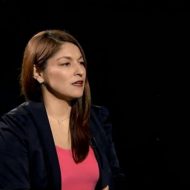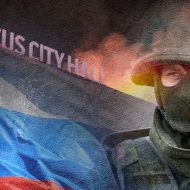This Sunday, November 7, 2021, general elections were held in the Republic of Nicaragua to elect president, vice president, 90 deputies of the unicameral National Assembly and 20 legislators of the Central American Parliament (PARLACEN). The Supreme Electoral Council (CSE) reported that more than 4 million Nicaraguans were eligible to vote, for which more than 3,000 voting centers were established throughout the country.
Likewise, the CSE accredited 232 electoral companions from 27 countries and 600 local and international journalists. The normal development of these elections was ensured by 15,000 members of the Nicaraguan Army and more than 16,000 agents of the Nicaraguan National Police, as well as by biosafety measures directed by the Ministry of Health of the Central American nation. The voting centers remained open from 8 in the morning until 6 in the afternoon, as long as there were no people waiting to exercise their right to vote.
The candidates for president for the 2022-2027 term have been: for the Sandinista National Liberation Front (FSLN), Commander Daniel Ortega, current Head of State of Nicaragua and top Sandinista leader; for the Constitutionalist Liberal Party (PLC), Walter Espinoza; for the Independent Liberal Party (PLI), Mauricio Oué; for the Nicaraguan Liberal Alliance (ALN), Marcelo Montiel; by Camino Cristiano Nicaragüense (CCN), Guillermo Osorno; and, for the Alliance for the Republic (APRE), Gerson Gutiérrez.
Also, there are three parties disqualified from participating in these elections and several presidential candidates are imprisoned under accusation of treason to the nation, among them: Cristiana Chamorro, daughter of the former president and most popular opponent, Violeta Barrios de Chamorro; as well as Félix Maradiaga; Arturo Cruz; Medardo Mairena; Miguel Mora; Noel Vidaurre; and Juan Sebastián Chamorro, all imprisoned between June and July of this year, on charges of designing and implementing plans to overthrow the Sandinista government.
All politicians – accused of treason – are suspected of having violated the “Law for the Defense of the Rights of the People to Independence, Sovereignty, and Self-determination for Peace”.
Imperial interference
These elections have been criticized by the United States and several countries of the European Community, which maintain permanent harassment against the commander Daniel Ortega. It is well known that the White House has financed opposition political parties, associations, non-governmental organizations, and the media with the aim of provoking a coup and overthrowing the Ortega government. In that sense, the US Cooperation Agency (USAID) destinated tens of millions of dollars to establish a transition regime, like the one they want to impose in Venezuela (with or without Juan Guaidó).
An example of this can be found in the Foundation of former president Violeta Barrios de Chamorro, an opposition leader financed by the most reactionary sectors of the United States government. Only from 2008 to 2010, the Violeta Barrios Foundation has received about 20 million dollars for its media project “Channel 12” with which it claims to “fight for freedom of expression.”
Another more direct example of the US intervention in Nicaragua is the threats of the United States to exclude Nicaragua from the DR-CAFTA Free Trade Agreement. This is a multilateral agreement signed between the Central American countries, plus the Dominican Republic (DR) and the United States, which does not have an exclusion mechanism for any of its member countries. However, the United States is pressing unilaterally to force the exit of Nicaragua, harming the Central American country in a very unfavorable economic context.
Thus, the escalation of conflicts, especially since 2018 to date, fostered by political forces and opposition political leaders through marches and violent protests, has led the Sandinista government to take measures, within the Nicaraguan Constitution and Laws, to avoid coup attempts and total destabilization of the country: ranging from the enactment of international cooperation laws, which regulate and account for the funds received by NGOs in Nicaragua and what those funds are used for. Legal proceedings have also been initiated against those who are materially and intellectually responsible for the violent protests.
The 2018 coup attempt, under the façade of citizen demonstrations, left dozens of deaths, while deepening a crisis with economic, social, political, and immigration consequences.
Protests abroad
The Nicaraguan diaspora convened to some mobilizations in San José of Costa Rica, El Salvador, Madrid, and Washington to express its opposition to the elections. They questioned the lections due to the disqualification of the main opposition alliance and the arrest of seven presidential candidates.
In this regard, the Nicaraguan Foreign Minister, Denis Moncada, referred this Sunday to the possibility that the international community does not recognize the result of the elections, a position promoted, among others, by the United States, the European Union and the Organization of Americans States (OAS): “We are not going to intimidate ourselves with your threats, with your unilateral measures, with your sanctions, with your threats of ignorance of elections.” And he specified: “We reject, denounce and condemn all the interference measures, all the intervention measures, all the aggressive measures” against the people and the government of Nicaragua, the foreign minister concluded.
First statements
In the afternoon of this Sunday, November 7, after voting, Commander Daniel Ortega, gave a press conference, in which he said:
“…The vote does not kill anyone, the vote does not cause any injury to any person, the vote does not call for terrorism, the vote never called for war tanks, the vote does not call for attacks against the homeland, or that the economy is paralyzed, nor to families being destroyed”.
“The vote does not call for torture, we cannot forget after so many years of peace, we cannot forget those who sowed terror in the country, who tortured young people, women, colleagues, citizens, Nicaraguans, and then spraying fuel They whipped them naked and, finally, setting them on fire, they burned them all”.
“We saw it, we all saw it, and now we have all managed to end terrorism, restore peace and stabilize the country. And not only stabilize, but advance in the well-being, in the progress of Nicaraguan families. This is what our people want and what humanity wants. Humanity does not want war, it does not want blood, it wants peace, it wants to progress, it wants and needs well-being.”
In that vein, Ortega said that “these elections that have been held today are – thank God – a sign of a commitment by the vast majority of Nicaraguans to vote for peace and not for war and not for the terrorism”. In addition, he added that “from 1984 to this date, a total of 49 elections have been held in our country,” thus affirming the democratic spirit of Nicaraguan society.
For its part, the Supreme Electoral Council (CSE) stressed that the process was carried out with complete normality, with good citizen participation and called these elections a victory for Nicaragua and a democratic party. The CSE published on its official Twitter account:
“#EleccionesSoberanas2021 | Nicaraguan families went to the country’s Voting Centers to exercise their right to vote 🗳 Free, Fair, Transparent and in Peace 🕊
Preliminary results: overwhelming Sandinista victory
The president of the Supreme Electoral Council (CSE) of Nicaragua, Brenda Rocha, released the preliminary results that confirm a resounding victory for the Sandinista National Liberation Front (FSLN): with 74.99% of the votes in favor, it remains in the Presidency of Commander Daniel Ortega for the period 2022-2027. The rest of the votes of the Nicaraguan citizens went to the Constitutionalist Liberal Party (PLC: 14.40%); the Nicaraguan Christian Way party (CCN: 3.44%); the Nicaraguan Liberal Alliance (ALN: 3, 27%); the Alliance for the Republic (APRE: 2.20%); and the Independent Liberal Party (PLI: 1.70%).
Citizen participation was very high, on par with or higher than that presented in other electoral processes in Latin America as a consequence of the Covid19 context: 65.34% of the Nicaraguan electoral roll expressed their popular will at the polls. It should be noted that the opposition to the government of Daniel Ortega had called for a boycott of these elections, however, the people of Augusto Sandino and Carlos Fonseca demonstrated that they do not respond to the interests of the United States and its representatives in Nicaragua.
What is coming next?
While Nicaragua celebrates a true democratic party, this victory of the Sandinista Front means greater pressure from the United States and the European Union. In this sense, the US president, Joe Biden, threatens to put into action a new destabilizing plan against the government of Daniel Ortega. This is the bill known as “Renacer” (meaning “Be reborn” or “Born again”), which has been endorsed by the House of Representatives and the Senate of the United States.
The law to Strengthen Compliance with Conditions for Electoral Reform in Nicaragua (Renacer) allows the White House to redouble its sanctions against the government of Daniel Ortega, militants and leaders of the Sandinista National Liberation Front. In addition, it continues the harassment against Managua to expel Nicaragua from the Free Trade Agreement with the Dominican Republic and Central America (DR-CAFTA for its acronym in English).
If Nicaragua’s exclusion from the DR-CAFTA materializes, this would imply a new economic blow against the Central American country. A criminal blockade, in violation of International Law and contrary even to the philosophy of “free trade”, which would only bring misfortune for the Nicaraguan people. Several economic analysts maintain that DR-CAFTA is Nicaragua’s main source of income, and that is why the United States aims to suffocate the Nicaraguan people as it has done with the people of Cuba and Venezuela, among other cases of pure US’s imperialism.
For his part, the High Representative for Foreign Policy of the European Union (EU), Josep Borrell, declared – on behalf of the 27 countries that make up this European bloc – that the electoral process in Nicaragua was “a fake” and that these elections established an “autocratic” regime. Borrell also maintained that “the EU reaffirms its commitment to support the Nicaraguan people, including strengthening the rule of law and the economic and social development of the most vulnerable.” However, it is most likely that Borrell and the leaders of European nations will support the new imperialist attacks against the Nicaraguan people and government, thus helping to worsen the country’s living conditions.
However, just as Nicaragua has enemies, it also has friendly governments, brothers, and political allies throughout the world. In this regard, the Russian Foreign Minister, Sergei Lavrov, stressed that the process was held in an “organized” manner and in line with local regulations: “We sent observers (…) and, according to their testimony, the elections were held in an organized manner and in compliance with Nicaraguan legislation, the epidemic rules imposed by COVID-19 and with significant citizen participation,” Lavrov said at a joint press conference with his Venezuelan counterpart, Félix Plasencia.
Lavrov added that the elections were held amid “unprecedented pressure” on Nicaraguan authorities and that the US began a campaign to avoid recognition of its results. “Only the people of Nicaragua have the right to decide on the legitimacy of the electoral processes in their country,” said the Russian Foreign Minister.
Other congratulations and other threats will follow each other over the days, while Nicaragua has achieved a new goal: to move peacefully through another democratic step in search of sovereign recognition of the determination of the people of Sandino, Fonseca, Rubén Darío, Ernesto Cardenal, by Gioconda Belli, by Rosario Murillo, and by so many men and women of peace, love and poetry. Long live Free and Sovereign Linda Nicaragua!









Leave a Reply